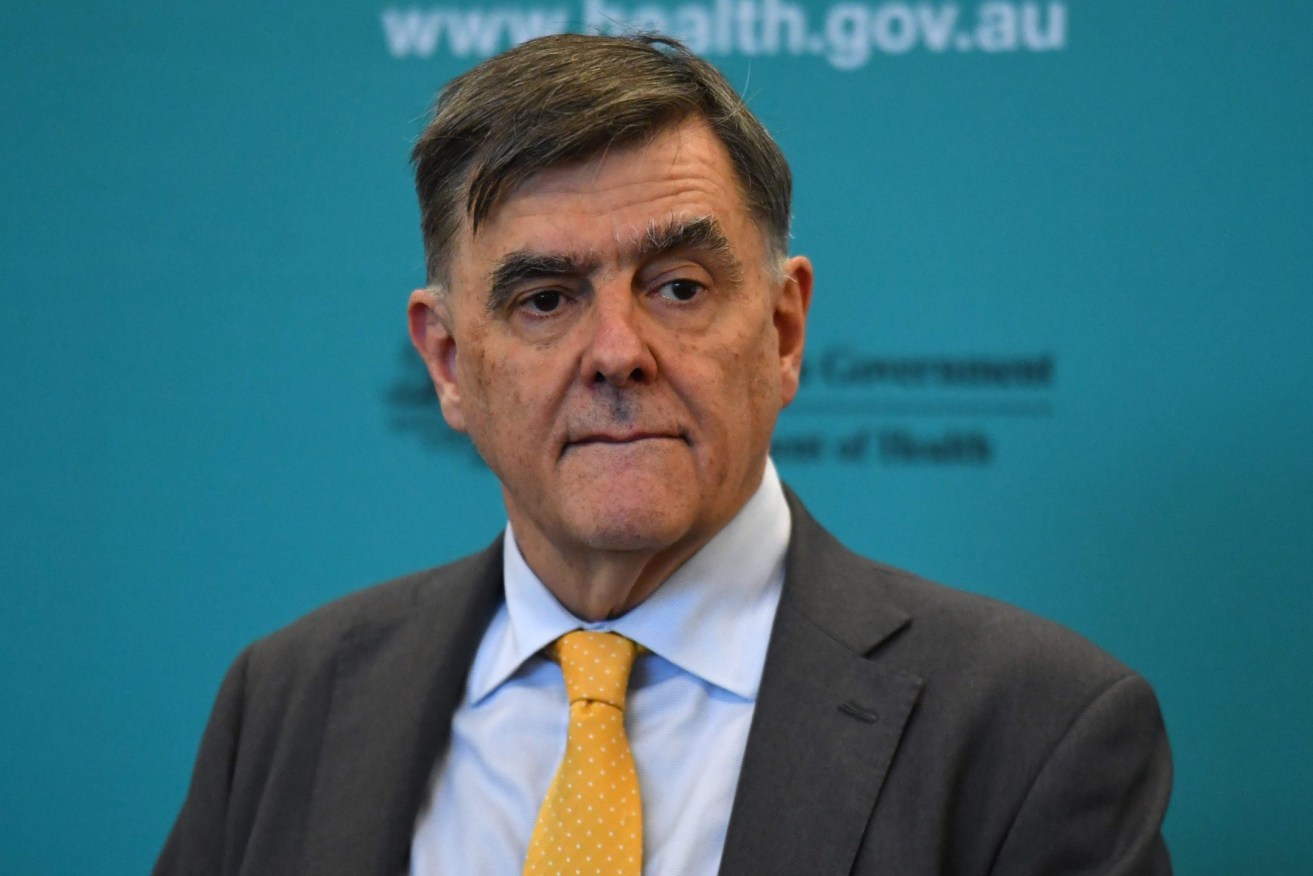Battle over: Leader of Australia’s pandemic response to retire
Health Department secretary Professor Brendan Murphy, who led the nation through the turbulent Covid-19 pandemic, is retiring.

Health Department secretary Brendan Murphy. (Photo: AAP Image/Mick Tsikas)
Murphy took on the top job in mid-2020 after previously joining the department as chief medical officer in 2016. He will retire on July 6.
The doctor helped Australia form its pandemic response as the number of infections exploded globally, sending countries into lockdowns and closing borders.
Health Minister Mark Butler said Murphy led the department during its “biggest public health response in over 100 years”.
“Professor Murphy’s time as secretary was broader than just Covid,” he said on Thursday.
“He has overseen the start of aged care, mental health, primary care and health workforce reform.
“I want to thank Professor Murphy for his professionalism and his help in establishing the Health and Aged Care ministerial office for the Albanese government.
“I wish him well in his retirement.”
Butler said the department had a renewed focus on Commonwealth-state health relations under the doctor’s leadership.
A merit-based recruitment process is under way to find the next health boss.
Opposition health spokeswoman Anne Ruston said the coalition thanked Murphy for his “outstanding contribution” to Australia’s health and aged care systems.
“His expert and steadfast advice at the height of the Covid-19 pandemic guided Australia through the most significant public health challenge in modern history,” she said.
“We know that his influence and leadership will have a lasting impact on Australia’s health and aged care systems.”
Pharmaceutical Society of Australia National President Dr Fei Sim said he was sad to hear Murphy would stand down and thanked him for supporting the profession.
“Under Professor Murphy’s leadership, the federal government made the largest investment in pharmacy outside of the community pharmacy agreement, announcing $345.7 million to embed pharmacists in residential aged care facilities to improve medicine safety for our oldest Australians,” he said.












